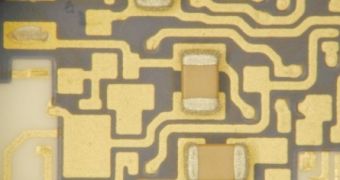The transistor has just celebrated its sixtieth anniversary and it's been about 50 years since it was first integrated into a silicon chip. These tiny switches make a true "neuronal link" inside a processor, but judging by the rapid evolution in the chip world they tend to become useless soon.
The need for more and more computing power has pushed proportional amounts of transistors in the same silicon space. They demanded miniaturization, and in time they have become so small that shrinking them even more would be impossible.
Once the lower limit is reached, the semiconductor industry will face one of its greatest fears: performance gains will have to be put on hold and so will the cost reductions. Gordon Moore, Intel's co-founder, made a statement back in 1965 that is widely known as Moore's Law: the number of transistors on a chip is due to double every two years.
It is obvious that the end is near, since semiconductor manufacturers are already delivering 45-nanometer chips. "I can see (it lasting) another decade or so", Moore said. "Beyond that, things look tough. But that's been the case many times in the past."
Chip manufacturers are already investing huge amounts of their profit for researching alternative solutions in order to deploy more efficient transistors, such as Toshiba's three-dimensional model. Intel speculates on alternative technologies, including quantum computing and optical switches to completely replace transistors in chips.
"Things are changing much faster now, in this current period, than they did for many decades", said Intel Chief Technology Officer Justin Rattner. "The pace of change is accelerating because we're approaching a number of different physical limits at the same time. We're really working overtime to make sure we can continue to follow Moore's Law."
According to Moore's law, the end of miniaturization is about to come around 2020. If semiconductor manufacturers don't come with an efficient replacement for transistors, they had better fasten their seat belts and prepare for the industry's crash landing.

 14 DAY TRIAL //
14 DAY TRIAL //